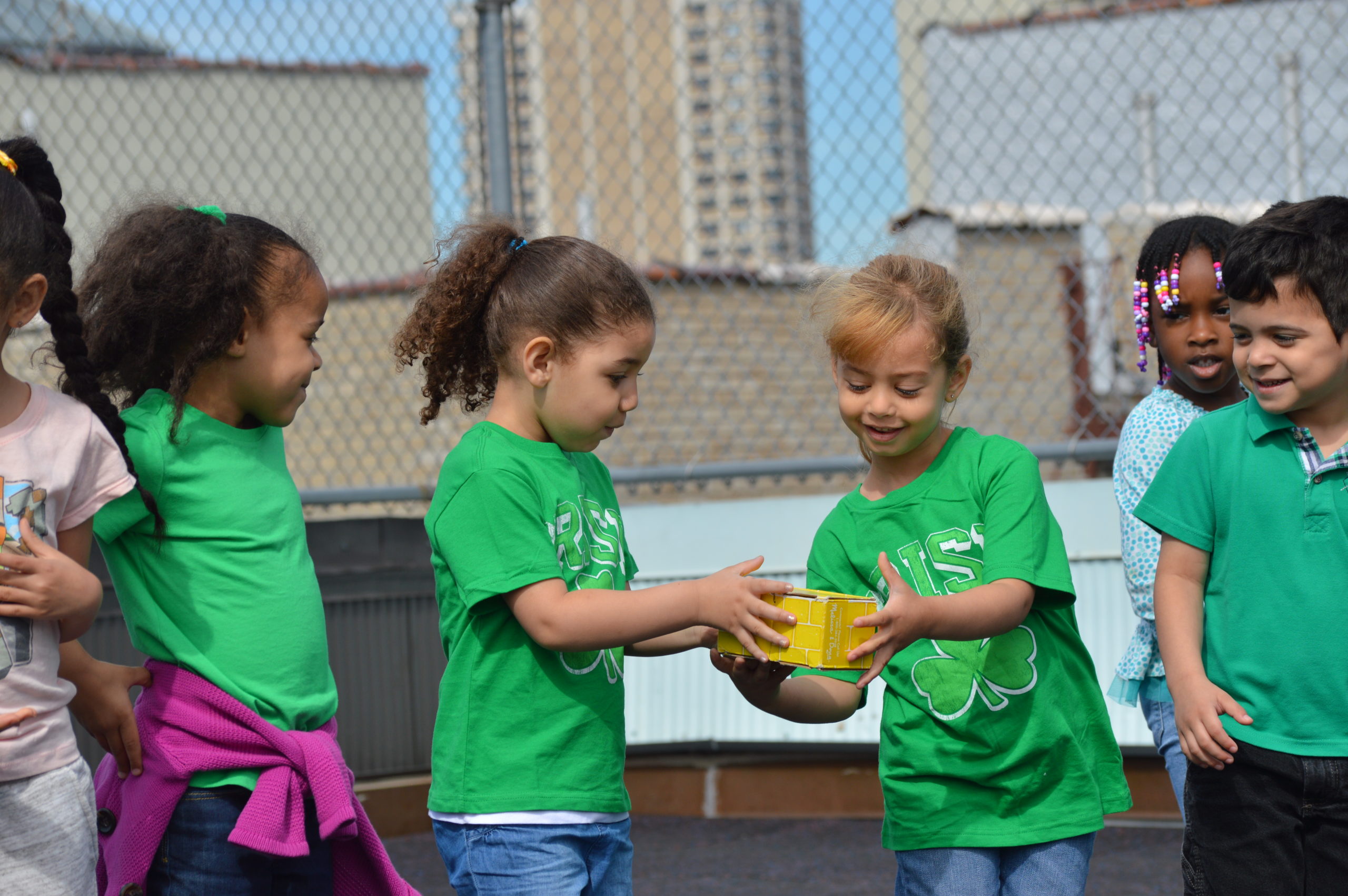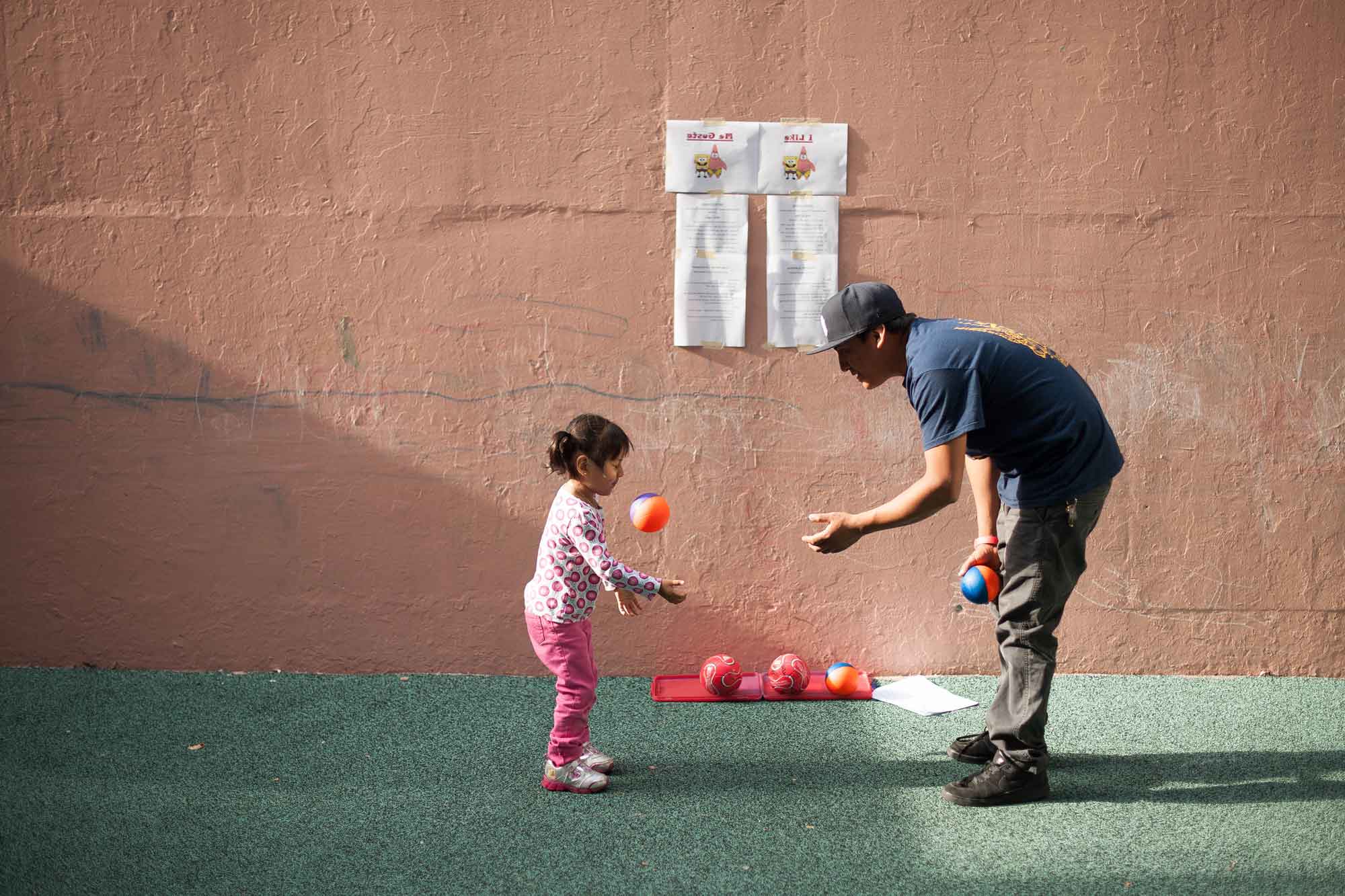
What Does Support Look Like Right Now? Learnings from “Community Huddles”
On Wednesday, April 15th, over 40 youth development professionals from around the world gathered on Zoom to discuss the challenges they are facing as a result of COVID-19, and the support systems that are helping them through. After playing a virtual activity to reflect on support strategies together, attendees broke into smaller groups and shared openly about the pains, frustrations, and joys they and their communities are experiencing. Key themes began to emerge in the obstacles most commonly being tackled by those in the Huddle. These included:
1) difficulty in providing needed emotional support;
2) ensuring access to needed resources, and
3) adapting program offerings to preserve the power of their work. Detailed insights and learnings are available to access our Community Huddle takeaways document here or on our website under “Resources for Practitioners.”
Reaching Out and Checking-In
Across the board, youth development practitioners are adapting their programs to better connect and engage with children and parents, as well as fellow professionals. Now more than ever, the community is essential to the continuity and strength of support their programs provide. These individuals have gotten creative with how to reach out in meaningful ways.
Many youth development practitioners have found that both individual outreaches paired with regular engagements with families help establish new routines in communication between programs and participants. Especially since the impacts of COVID-19 are being felt in radically different ways depending on who you are and where you’re from, the youth development superpowers of checking in and asking great questions are taking on new importance. Finding ways to incorporate creativity and play into these touchpoints has proven even more effective. Some described creative examples of how they’re putting this into practice: Questions of the Day, virtual tabletop or party games, Theme Days (i.e. “Wacky Hat Day”), which have all been used to engage both children and adults. Among youth development professionals, weekly Huddles and other casual touchpoints — with games, breakout discussions, and shoutouts for needed support, have been creating sustaining connections when they’ve been needed most.
Repurposing Communication Channels and Mobilizing Resources
For Play At The Core and many other youth development organizations, the results of a thorough needs assessment directly inform program planning and resource mobilization. The varying impacts of COVID-19, mentioned above, have resulted in equally diverse needs for support: from food and housing insecurity to challenges in medical and mental health access, to a lack of equipment and materials to continue participation in programming remotely. To address these issues, youth development professionals have been employing a variety of strategies to disseminate information and connect their communities with needed services. Chief among these has been the repurposing of participant mailing lists, and social media channels to share information about resource distribution and referrals for services. Greater coordination and aligned communication across organizational teams are both ensuring accurate messaging and reducing the risk of information overload.
Some youth development programs have been utilizing flexible funding in their budgets to address resource scarcity directly by putting together goodie bags of necessary supplies for families to pick-up or mailing program materials directly to the home to ensure that children can remain engaged with programming. Lastly, in an attempt to support everyone who is suffering from the increased isolation and disruption in our lives, some have spearheaded “Wellness Webinars,” introducing attendees to self-care resources such as meditation, or informational sessions with health professionals.
The Pivot to Technology
Another frequently discussed challenge was the jarring pivot to e-learning and other digital platforms for youth development programs. Practitioners brainstormed ways to access and connect with families that don’t have devices or WiFi, and to build the capacity of children, caregivers, and fellow professionals in the various new applications such as Microsoft Teams, Google Classroom, and Zoom.
Their solutions ranged from tactical to creative. Some practitioners were providing free hotspots for families without internet access, or lending extra devices to children or even teachers and program staff. Even as practitioners confront the immediate issues with access to technology, it is deeply inspiring to see the veritable renaissance in youth development program innovation forming on the horizon. Organizations that are ensuring a supportive environment for their program teams during this time are being rewarded with an explosion of creative programming. These teams are reimagining their work in a new medium and experimenting endlessly with new activities that preserve what has always made their work so powerful: connections and community. Some ideas include “athletic” competitions with common household items, virtual art studios, lip sync battles, Friday Video Dance Parties, different adaptations of popular game shows, and even youth lead initiatives tackling current challenges in real-time.
What’s next for PATC’s “Community Huddles”?
The next “Community Huddle” will take place Wednesday, April 29th and focus on virtual connection building. The one-hour video workshop will start at 12:30pm EST and is called, “Expanding How We Build Relationships With Youth.” Learnings and insights will be posted on PATC’s website and other social media platforms.
Know someone who works with children that would benefit from participating in PATC “Community Huddles”? Just email info@playatthecore.com for more information!
If you’re interested in learning more about our work, visit us at playatthecore.com. For information about partnering or joining our team, please drop us a line!


